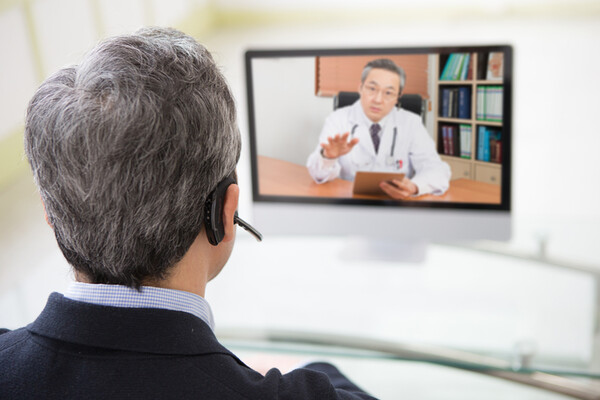A recent study conducted by the Korean Pharmaceutical Association (KPA) revealed that 60.5 percent of prescriptions issued through telehealth services are for non-reimbursed medications.

The findings come from an analysis of prescriptions processed via the Public Prescription Delivery System (PPDS) after the government expanded its telemedicine pilot project on Dec.15 of last year.
The survey, which reviewed a total of 3,102 prescriptions, found that out of 1,682 responses, 664 were for reimbursed medications (39.5 percent), while 1,018 were for non-reimbursed medications (60.5 percent).
Among the non-covered prescriptions, treatments for hair loss and acne were predominant, comprising 63.8 percent (649 cases) and 25.5 percent (260 cases), respectively, totaling 89.3 percent of all non-reimbursed prescriptions.
A senior KPA official expressed concerns over the findings, highlighting the potential risks associated with some of the non-reimbursed medications commonly prescribed via telehealth services.
"Many of the non-reimbursed treatments for conditions like hair loss and acne can affect hormone balance, leading to serious side effects such as erectile dysfunction, depression, and suicidal thoughts," KPA Vice President Kim Dae-won said. "There is also a risk of congenital anomalies from mere skin contact in pregnant women."
Kim questioned the public benefit of easily accessible prescriptions for such high-risk drugs through telemedicine.
Kim also criticized certain telemedicine platforms for misleading the public by excluding non-reimbursed treatments from their statistics, thereby portraying telehealth as more beneficial than it might be.
"We urge the government to immediately restrict the telehealth prescription of high-risk, non-reimbursed medications to protect public health," Kim said.
The KPA plans to continue monitoring the situation with telemedicine closely, aiming to provide more accurate data and address the distortions in public perception that have arisen from previous reports focusing solely on reimbursed treatments.

